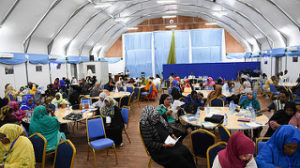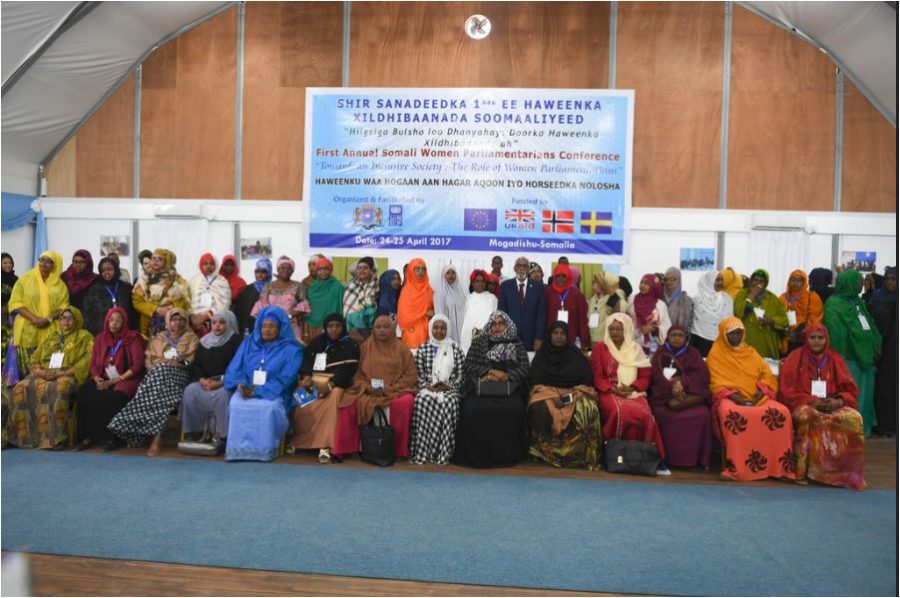The 2016 Somali Parliamentary election marked a new milestone for Somali women. Although the conversation about ‘Elevating Women in Political Participation and Leadership roles’ has been going on for some time, this had never been embodied in the manner it is in the current Parliament. Many Somalis championed, participated in and spent a lot of energy, resources and power to take our cause to the next level. 

We are all too familiar with stories about how Somali women are the backbone of our society and how over the past two decades they became the main breadwinners of their families. What we don’t often see is these women represented at the decision making table. We know from research that including women in the decision making process and having a more equal society is good for everyone.
Last year in September many, including myself, participated in the movement that resulted in the increase in the representation of women in Parliament from 14 percent in the last Parliament to the current 24 percent. Through the process I learnt a lot and although not an easy task it made me realize how attainable the goal of increasing the representation of women is if we put the right effort in, and strategize. Our fear of losing the small percent we had in the previous Parliament motivated us to work harder.
The increase in the number of female parliamentarians did not reflect on the outcome of the Parliament leadership election or the membership in the parliamentary constitutional committee in both houses. On the bright side though, we achieved some progress and for the first time we have six female ministers in the Council of Ministers.
Our achievements are still fragile and lots of challenges are still ahead of us. We need to be prepared for the long marathon ahead and double our efforts. We need to come up with a short and long-term vision to ensure we continue to build on the progress we have made so far and to secure further progress.
In conclusion, to build on our achievements, we need to:
⦁ Empower young girls from an early age and allow them to believe in themselves and in their future;
⦁ Establish female leadership schools and/or institutions;
⦁ Engage with and educate wider society so that they are part of the process;
⦁ Pass laws and treaties to protect women.
Now that Somali leaders and international partners are gathering at the London Conference, it will be critical to address some important issues such as gender equality. We must not forget that an inclusive society is the only way forward towards speedy recovery for Somalia.


